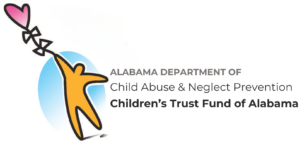 Addiction is frequently considered a family disease – and for good reason. It affects the addict, their families, their friends, as well as anyone who is close to family and friends of the addict. As behaviors of those suffering from addiction become severe, family and friends often feel responsible for keeping their loved one safe and are left to clean up the damages. This can place a heavy burden on everyone that addiction touches. As loved ones become stressed out, overwhelmed, and encompassed by fear, they will likely carry these emotions into their own personal lives, which, in turn, affects others. Despite the overall health and functionality of a family prior to the addiction, loved ones are always impacted in one way or another when addiction takes hold.
Addiction is frequently considered a family disease – and for good reason. It affects the addict, their families, their friends, as well as anyone who is close to family and friends of the addict. As behaviors of those suffering from addiction become severe, family and friends often feel responsible for keeping their loved one safe and are left to clean up the damages. This can place a heavy burden on everyone that addiction touches. As loved ones become stressed out, overwhelmed, and encompassed by fear, they will likely carry these emotions into their own personal lives, which, in turn, affects others. Despite the overall health and functionality of a family prior to the addiction, loved ones are always impacted in one way or another when addiction takes hold.
Beyond the Power of Choice and Control
When speaking on the topic of families and addiction, it is equally important to understand the disease model of addiction. Various roles are taken on by family members to cope with the habitual behaviors of the addict, and these behaviors are often beyond a person’s mental and physical control. I didn’t want to hurt my family and friends – nobody does. Unfortunately, there is a mental obsession and physical phenomena that develop with addiction. For those of us who suffer from addiction, the chains of addiction are too weak to feel until they are far too strong to break.
In my own personal experience, my mind was too clouded by my obsession with drugs to consider the effects it was having on my loved ones. My cravings were too strong to let anything stop me from getting my next fix. My reckless behaviors were driven by the forces of my addiction. I didn’t wake up one day and decide to stick a needle in my arm and set fire to my personal relationships, but my addiction gave me the denial and ambition to do so. In fact, I woke up each day with a firm resolve that I wouldn’t get high, only to find myself hours later sinking into oblivion, dumbfounded at why I couldn’t just stop. As time passed, my family began to change their behaviors to cope with the turmoil I was causing.
Family Roles and Addiction
Family members and loved ones often begin to adjust to their suffering loved one’s behaviors and assume various family roles. Aside from the addict, there are several roles that are typical among families affected by addiction. Looking back upon the years that I spent in addiction, I can clearly see how the people closest to me assumed these roles in order to cope with the wreckage brought on by my behaviors.
The Problem Child
The problem child is exactly what it sounds like – a child who acts out in rebellion and influences the entire family dynamic. This role frequently involves the use of drugs and alcohol.
In my family, I was the problem child from the beginning. I believe that I had the disease of addiction before drugs were ever introduced. I would lie to make myself seem perfect, manipulate others to get what I wanted, and cause turmoil between my friends and family. When I felt like I wasn’t good enough, I began to experiment with drugs and alcohol. My addiction took off rapidly. As I progressed in my role as the problem child, my loved ones began to take on their own unique roles.
 The Codependent or Enabler
The Codependent or Enabler
Codependency is one of the most renowned roles that family members assume. Codependents tend to disregard their own personal needs to provide for and keep their addicted loved one safe. A family member who takes on the codependent role is often riddled with guilt. They may question if they could have done something more to prevent their loved one from abusing substances in the first place. As a result, a codependent person may feel as though it is their responsibility to keep their loved one safe. With codependency often comes enabling. An enabler might loan money, bail their addicted loved one out of jail, or lie to others to cover up their loved one’s behavior.
This role is most commonly assumed by a parent, spouse, or older child. In my case, it was a boyfriend. For four years he kept a roof over my head, lied to our friends to cover up my behaviors, bailed me out of jail, and provided me with emotional security. He thought he was helping – he thought that it was his responsibility to keep me safe. However, this ended up taking a great emotional toll on him, affecting his work and family life as well. In addition, it allowed me to continue my addictive behaviors with few consequences.
The Hero
The hero in the family will tirelessly try to control the situation and keep the family intact. They may be overzealous in their efforts and feel neglected when their efforts go unnoticed. Due to their hard work and determination to mend broken relationships, the hero will suffer from high levels of stress and internal strife.
Between the nights without sleep, the constant calls to treatment centers and addiction counselors, and the enthusiastic ideas she came up with, my mother certainly experienced continuous stress, fear, and worry. She worked incessantly to try and find a way to convince me to get help, keep our family together, and maintain our family’s outward image. In the end, she found herself exhausted and defeated, ultimately learning that I had to want the help before she could give it.
The Mascot
The mascot usually feels uncomfortable addressing the topic of addiction and may act out in humor as a coping mechanism. Although it may bring a temporary sense of relief while trying to attain balance and comfort at home, this person is likely stuffing their emotions deep inside.
My mascot was my father. My dad has a huge heart, and he’s an emotional person, but when it came to my addiction, it was far too much to bear. He simply couldn’t handle watching his daughter slowly kill herself. As my mom was enveloped with fear and anxiety, he attempted to bring balance and happiness into the home, while neglecting his own emotional needs.
The Lost Child
The lost child is usually somewhat isolated from other family members and may struggle with developing meaningful relationships. They typically engage in activities or excess work to distract themselves from the negative environment within the family.
The lost child in my family was my older sister. I hurt her – I caused her emotional harm, then proceeded to manipulate my mother to believe my lies. My sister was hurt and felt as though her voice wasn’t heard. She distanced herself from the rest of the family and began to reach for any and every distraction to escape from the emotional turmoil I put her in. In turn, this caused a detrimental ripple effect, affecting her fiancé, her daughter, and her work life.
Families Touched by Addiction
Addiction may cause loved ones to feel hopeless and defeated. It is imperative for family members to understand that they did not cause their loved one’s addiction and they certainly cannot control it. Rather than neglecting their own mental health and emotional wellbeing, families can seek outside help to deal with their struggles and cope with their emotions in healthy ways. Both Al-Anon and family counseling can help families of addicts develop healthy boundaries and coping mechanisms which allow family members to better take care of themselves. Seeking outside guidance will help families affected by addiction walk through difficult times and maintain a healthy family dynamic.
Although the recovery process isn’t easy, it is certainly possible – for both families and addicts. A family who uses their past experiences to learn, grow, and change will find that they are healthier than were before addiction hit. The good news that we do not often hear is that an estimated 23 million individuals in the U.S. have overcome a problem with drugs or alcohol – and each of these individuals is part of a family of some sort. Don’t give up, there is hope… for individuals and for families! The healing is worth the work![1]









